Logistics and distribution companies manage vast amounts of sensitive data, including supply chain information, financial transactions, and customer data. Cybersecurity regulations for this sector are designed to protect the confidentiality, integrity, and availability of data while ensuring compliance with industry and legal standards. Below are key regulations and best practices for logistics and distribution companies:
Cybersecurity Regulations for Logistics & Distribution
1. General Data Protection Regulation (GDPR)
- Applicability: Companies handling personal data of European Union (EU) residents.
- Requirements:
- Obtain explicit consent for data collection and processing.
- Secure personal data during storage and transfer.
- Report data breaches to authorities within 72 hours.
2. California Consumer Privacy Act (CCPA/CPRA)
- Applicability: Companies handling personal data of California residents.
- Requirements:
- Allow consumers to access, delete, or opt-out of data sharing.
- Protect personal information with reasonable security measures.
- Notify consumers of data breaches promptly.
3. Customs-Trade Partnership Against Terrorism (C-TPAT)
- Applicability: U.S. companies involved in international trade.
- Requirements:
- Implement supply chain security measures, including cybersecurity protocols.
- Protect systems and data from unauthorized access or tampering.
- Regularly assess and improve cybersecurity practices.
4. NIST Cybersecurity Framework (CSF)
- Applicability: U.S. companies adopting voluntary cybersecurity best practices.
- Requirements:
- Identify critical assets and vulnerabilities.
- Protect data using encryption and access controls.
- Detect, respond to, and recover from cyber incidents effectively.
5. International Traffic in Arms Regulations (ITAR)
- Applicability: Companies shipping defense-related products.
- Requirements:
- Safeguard sensitive technical data and prevent unauthorized access.
- Encrypt all communications and data related to defense logistics.
6. Cybersecurity Maturity Model Certification (CMMC)
- Applicability: U.S. Department of Defense (DoD) contractors, including logistics providers.
- Requirements:
- Achieve a certified level of cybersecurity maturity.
- Implement controls to protect Controlled Unclassified Information (CUI).
7. ISO/IEC 27001
- Applicability: Global organizations seeking information security certification.
- Requirements:
- Develop an Information Security Management System (ISMS).
- Conduct risk assessments and implement appropriate controls.
- Regularly review and improve cybersecurity measures.
8. State Data Breach Notification Laws (U.S.)
- Applicability: Varies by state, applicable to companies experiencing a data breach.
- Requirements:
- Notify affected individuals and authorities promptly after a breach.
- Provide details of the breach and recommended steps to mitigate risks.
9. Payment Card Industry Data Security Standard (PCI DSS)
- Applicability: Companies handling payment card transactions (e.g., for shipping fees).
- Requirements:
- Encrypt payment data during transmission and storage.
- Conduct regular vulnerability scans and penetration testing.
- Restrict access to payment systems and sensitive data.
10. Trade Compliance Regulations
- Applicability: Organizations involved in international trade and shipping.
- Requirements:
- Protect sensitive trade data and customer information.
- Ensure cybersecurity measures are compliant with global trade standards.
Key Cybersecurity Best Practices for Logistics & Distribution
1. Supply Chain Risk Management
- Assess and address cybersecurity risks across the entire supply chain, including third-party vendors.
2. Data Encryption
- Encrypt sensitive data during transmission and storage to prevent unauthorized access.
3. Access Controls
- Use multi-factor authentication (MFA) and role-based access control (RBAC) to limit system access.
4. Regular Audits and Assessments
- Conduct regular cybersecurity audits to identify vulnerabilities and improve defenses.
5. Incident Response Planning
- Develop and test incident response plans to handle data breaches or cyberattacks.
6. Employee Training
- Train employees to recognize phishing attempts and follow secure data handling practices.
7. Secure IoT Devices
- Protect Internet of Things (IoT) devices used in warehouses and transportation with strong passwords and software updates.
8. Real-Time Monitoring
- Implement tools to monitor systems and detect suspicious activities in real time.
9. Backup and Recovery Systems
- Maintain secure, offsite backups of critical data to ensure business continuity during cyber incidents.
10. Endpoint Security
- Protect endpoints such as computers, mobile devices, and shipping scanners with robust antivirus software.
Challenges in Logistics & Distribution Cybersecurity
- Complex Supply Chains: Coordinating with multiple vendors and partners introduces security risks.
- Legacy Systems: Older systems may lack modern security features and are vulnerable to cyberattacks.
- IoT Vulnerabilities: IoT devices used for tracking and automation can be exploited if not secured properly.
- Global Operations: Complying with diverse international regulations can be complex.
- Evolving Threat Landscape: The industry faces ransomware, phishing, and other sophisticated cyberattacks.
Conclusion
Logistics and distribution companies must comply with regulations such as GDPR, C-TPAT, and NIST CSF to protect sensitive data and maintain operational integrity. By implementing best practices like encryption, regular audits, and robust incident response plans, these companies can strengthen their cybersecurity posture and ensure compliance with industry standards. Proactively addressing risks and securing the supply chain are critical for long-term success in this highly interconnected industry.

